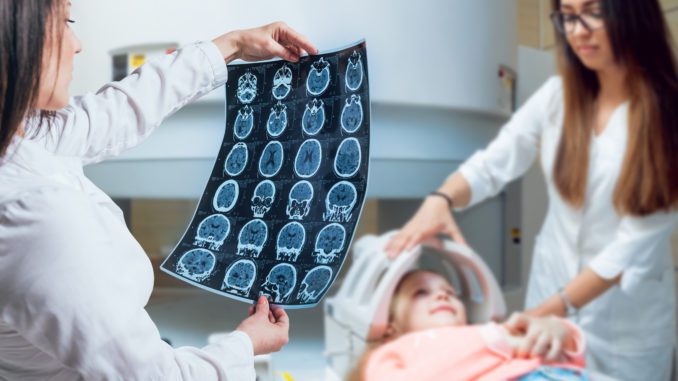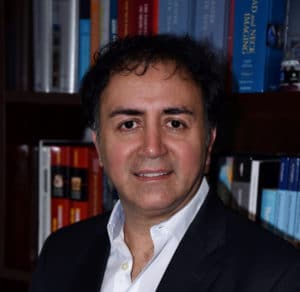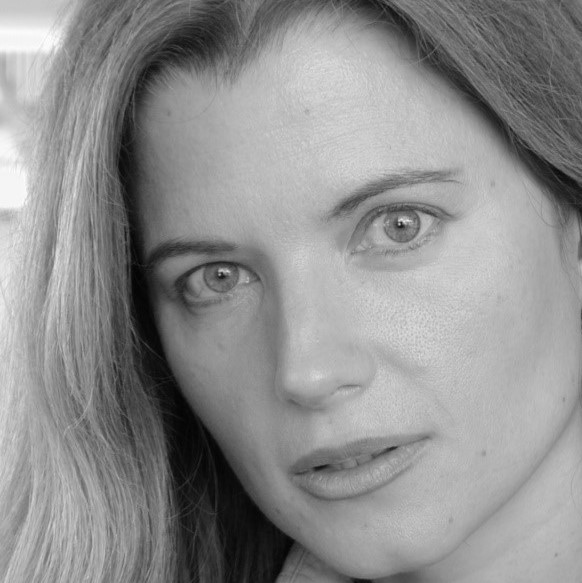
To help improve equitable access to health care, GE Healthcare and Intel are supporting an innovative project at the McGill University Health Centre focused on access to health care for remote communities in Quebec. GE Healthcare and Intel are adding their support to the project which was made possible by a generous donation announced last year by TD Bank Group (TD) through the Bank’s corporate citizenship platform, the TD Ready Commitment, in support of the AI for Urgent Care program and MUHC Foundation’s Dream Big campaign.
Dr. Reza Forghani and Dr. Caroline Reinhold devised this unique project that takes a pragmatic approach to using artificial intelligence (AI) to analyze emergency medical images that require urgent review, helping to accelerate care and potentially save lives. This new technology will be mainly used for x-rays and CT scans, which are the cornerstones of emergency medical imaging and diagnosis.
“There has been a lot of excitement about the potential of AI. This project aims to move AI from theory to direct clinical practice, improving specialty level emergency care and health equity for our remote communities. Successful implementation can also provide a model for future AI diagnostic assistant tool deployment across the province.”
– Dr. Reza Forghani, Associate Professor, Department of Diagnostic Radiology, Faculty of Medicine and Health Sciences, McGill University; Department of Medical Imaging, Division of Diagnostic Radiology, MUHC
GE Healthcare is happy to support this innovative project using its Edison Open AI Orchestrator platform that enables quick deployment of AI and non-AI based clinical applications, easy configuration of workflows and algorithm parameters, and provides the ability to easily experiment with GE and 3rd party AI applications. Edison Open AI Orchestrator was designed to seamlessly integrate clinical applications into the radiology reading workflow. It also provides a flexible, unified solution to allow organizations to quickly deploy AI-based clinical algorithms and optimize workflow processes. Designed to seamlessly integrate clinical applications into the radiology PACS reading workflow, this offering reduces the complexity of multiple systems and algorithms working together that could lead to error and risk if implemented incorrectly.
Using AI to serve patients
While AI technology is being used in radiology to read medical images and recognize disease entities, including detection of conditions that present considerable risk for patients, this innovative collaboration will lead to better care, and less unnecessary transport for patients. The project was developed by the team headed by Drs. Forghani and Reinhold, Co-Directors of the Augmented Intelligence & Precision Health Laboratory (AIPHL) of the Research Institute of the McGill University Health Centre (RI-MUHC) to prioritize images presenting potentially fatal conditions and transferring them directly to the medical specialist on duty. The specialist can then alert the remote hospital to the conditions that need to be promptly treated, such as a collapsed lung, bowel perforation or even a stroke.
“For remote communities who need hours to reach a specialized health care centre, a fast diagnosis can mean the difference between life and death. By using an AI-driven alert system to address barriers to radiological interpretation of urgent imaging findings, we hope to increase the accessibility and quality of specialized care provided to our remote communities”.
– Dr. Caroline Reinhold, Associate Member, McGill Centre for Translational Research in Cancer; Professor, Department of Radiology, McGill University; Associate Chair of Research, Department of Radiology, McGill University.
In a given year, MUHC radiologists examine over 190,000 x-rays, 100,000 CT scans, 40,000 MRIs and 70,000 ultrasounds. They are also responsible for reading approximately 12,000 x-rays and 1,000 ultrasounds per year for Northern health regions. This new project will help lighten the load for the MUHC’s radiologists while helping to find medical conditions quickly and with high accuracy.
“In remote communities, every second counts when it comes to dispensing urgent care. Knowing that patients who suffer a stroke in rural communities are 30% more likely to die than patients in urban areas, this project developed by our experts has the potential to help save countless lives.”
– Julie Quenneville, President and CEO of the MUHC Foundation
Thanks to the donations from TD, Intel and GE Healthcare, this initiative will have a positive impact on the entire McGill Réseau Universitaire Intégré de Santé et Services Sociaux (RUISSS) including 200,000 individuals living in the Nord-du-Québec and Abitibi-Témiscamingue regions, for whom the possibility of being transported to the MUHC is very limited. In the near future, this project could considerably impact all 7 million Canadians who currently live in rural communities.
This is a true partnership where philanthropy and industry are working hand in hand to make innovations like this feasible, and helping to improve the lives of thousands of patients.
About GE Healthcare
GE Healthcare is the $19.8 billion healthcare business of GE (NYSE: GE). As a leading provider of medical imaging, monitoring, biomanufacturing, and cell and gene therapy technologies, GE Healthcare enables precision health in diagnostics, therapeutics and monitoring through intelligent devices, data analytics, applications and services. With over 100 years of experience in the healthcare industry and more than 50,000 employees globally, the company helps improve outcomes more efficiently for patients, healthcare providers, researchers and life sciences companies around the world.
About the McGill University Health Centre Foundation
The McGill University Health Centre (MUHC) Foundation raises funds to support excellence in patient care, research and teaching at the McGill University Health Centre, one of the top university hospitals in Canada. Our Dream Big Campaign to change the course of lives and medicine is raising millions of dollars to solve humanity’s deadliest puzzles: infectious diseases; end cancer as a life-threatening illness; fix broken hearts through innovative cardiac care; detect the silent killers—ovarian and endometrial cancers—early; create the best skilled health care teams in Canada; and much more. We are rallying our entire community to solve the world’s most complex health care challenges.
About Intel
Intel (Nasdaq: INTC) is an industry leader, creating world-changing technology that enables global progress and enriches lives. Inspired by Moore’s Law, we continuously work to advance the design and manufacturing of semiconductors to help address our customers’ greatest challenges. By embedding intelligence in the cloud, network, edge and every kind of computing device, we unleash the potential of data to transform business and society for the better. To learn more about Intel’s innovations, go to newsroom.intel.com and intel.com.


 “There has been a lot of excitement about the potential of AI. This project aims to move AI from theory to direct clinical practice, improving specialty level emergency care and health equity for our remote communities. Successful implementation can also provide a model for future AI diagnostic assistant tool deployment across the province.”
“There has been a lot of excitement about the potential of AI. This project aims to move AI from theory to direct clinical practice, improving specialty level emergency care and health equity for our remote communities. Successful implementation can also provide a model for future AI diagnostic assistant tool deployment across the province.” “For remote communities who need hours to reach a specialized health care centre, a fast diagnosis can mean the difference between life and death. By using an AI-driven alert system to address barriers to radiological interpretation of urgent imaging findings, we hope to increase the accessibility and quality of specialized care provided to our remote communities”.
“For remote communities who need hours to reach a specialized health care centre, a fast diagnosis can mean the difference between life and death. By using an AI-driven alert system to address barriers to radiological interpretation of urgent imaging findings, we hope to increase the accessibility and quality of specialized care provided to our remote communities”. “In remote communities, every second counts when it comes to dispensing urgent care. Knowing that patients who suffer a stroke in rural communities are 30% more likely to die than patients in urban areas, this project developed by our experts has the potential to help save countless lives.”
“In remote communities, every second counts when it comes to dispensing urgent care. Knowing that patients who suffer a stroke in rural communities are 30% more likely to die than patients in urban areas, this project developed by our experts has the potential to help save countless lives.”